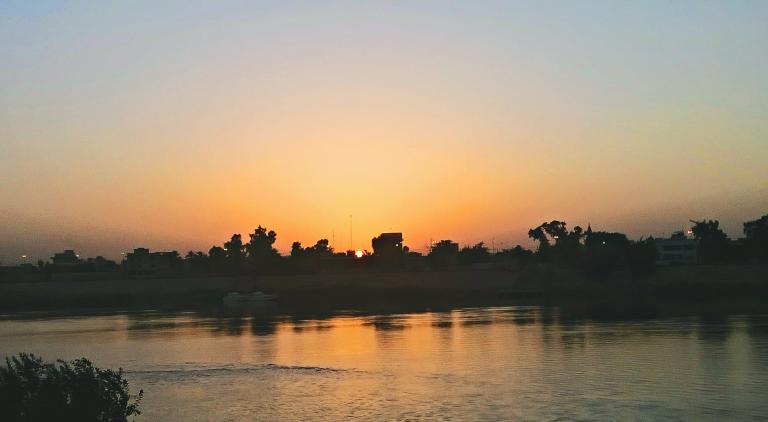
Still proceeding with the Book:
British troops took Mesopotamia away from the Ottoman Turks during the First World War (1914-1918), and in 1920 they received a mandate from the League of Nations to administer the area. Losing little time, they helped the locals to set up a government in 1921, under the name of “Iraq,” and brought in a new ruler to serve as monarch under the title of Faisal I. (This was the same Faisal whose troops the British officer known as “Lawrence of Arabia” had fought in league with against the Turks during the war.) But Faisal and his government were allowed precious little freedom to govern their new nation as they saw fit; Great Britain reserved for itself authority over Iraq’s economic, military, and foreign affairs. In 1932, the League of Nations finally ended the British mandate over Iraq and admitted the newly independent state to membership.
In 1958, though, a group of army officers, led by General Abdul Karim Qasim, overthrew the monarchy, wiping out the royal family and declaring Iraq a republic. It was hardly that, though. The new government ruled by decree. It reversed Iraq’s traditional pro-Western stance and turned to the Communist world for economic and military assistance. (This was about the time that Nasser in Egypt was doing much the same thing.) General Qasim’s government was corrupt and treated the people harshly. Among other things, he dispatched the army against Kurdish separatists in the north in 1961.
In 1963, another military coup assassinated General Qasim. The new revolutionary regime, led by officers who belonged to a political party known as the Ba’th, promised justice and reform. There was rejoicing in the streets and among Iraqi exiles abroad. Badr Shakir al-Sayyab’s poem “An Ode to Revolutionary Iraq,” written while he was undergoing medical treatment in London, is dramatic testimony to the high hopes that the new leaders of the country aroused in the hearts of many.
The agents of Qasim open fire upon the spring,
But all the illicit wealth they have amassed
Will melt like ice, to be again water,
Gushing along streams and brooks,
Bringing back the luster of life to the dry branches,
Restoring, without loss, all stolen from them in Qasim’s winter. O Iraq!
O Iraq! I can almost glimpse, across the raging seas,
At every turn, in every street and road and alley,
Beyond the ports and highways,
Smiling faces that say: “The Tatars have fled,
God has returned to the mosques with the break of day,
A day on which the sun shall never set!”
You are avenged on the traitors at the hands of my people in revolt.
The enemy of the people is cast down to the lowest hell… The doctor hurried to my side.
Was it that he had found a cure for the disease in my body? The doctor hurried to my side and said:
“What is this news from Iraq?
The army has rebelled, Qasim is dead!”
What joyous, health-restoring tidings!
In my joy, I almost stood up, walked, ran,
As if cured.
Rejoice! What liberation, what release!
Rejoice! The army of the Arab nation has torn off the bonds! O my brethren in God, in blood, in Arabism, in hope,
Arise, for tyrants are laid low,
And light has dispelled the night.
Guard well the Arab revolution
That crushed the “comrades,” cast down the oppressors,
For Tammuz, his splendor once stolen by the traitor,[1]
Has arisen, and Iraq is reborn.[2]
Mercifully, perhaps, al-Sayyab died an early death in 1964, still in London. He never had to see what became of his hoped-for revolution.
[1] Tammuz was an ancient Mesopotamian god of vegetation, who died and was then reborn. Thus, he became a god of resurrection as well. He is mentioned in the Bible at Ezekiel 8:14.
[2] Translated in An Anthology of Modern Arabic Poetry, edited by Mounah A. Khouri and Hamid Algar (Berkeley: University of California Press, 1975), 91-93.
Posted from Luxor, Egypt











